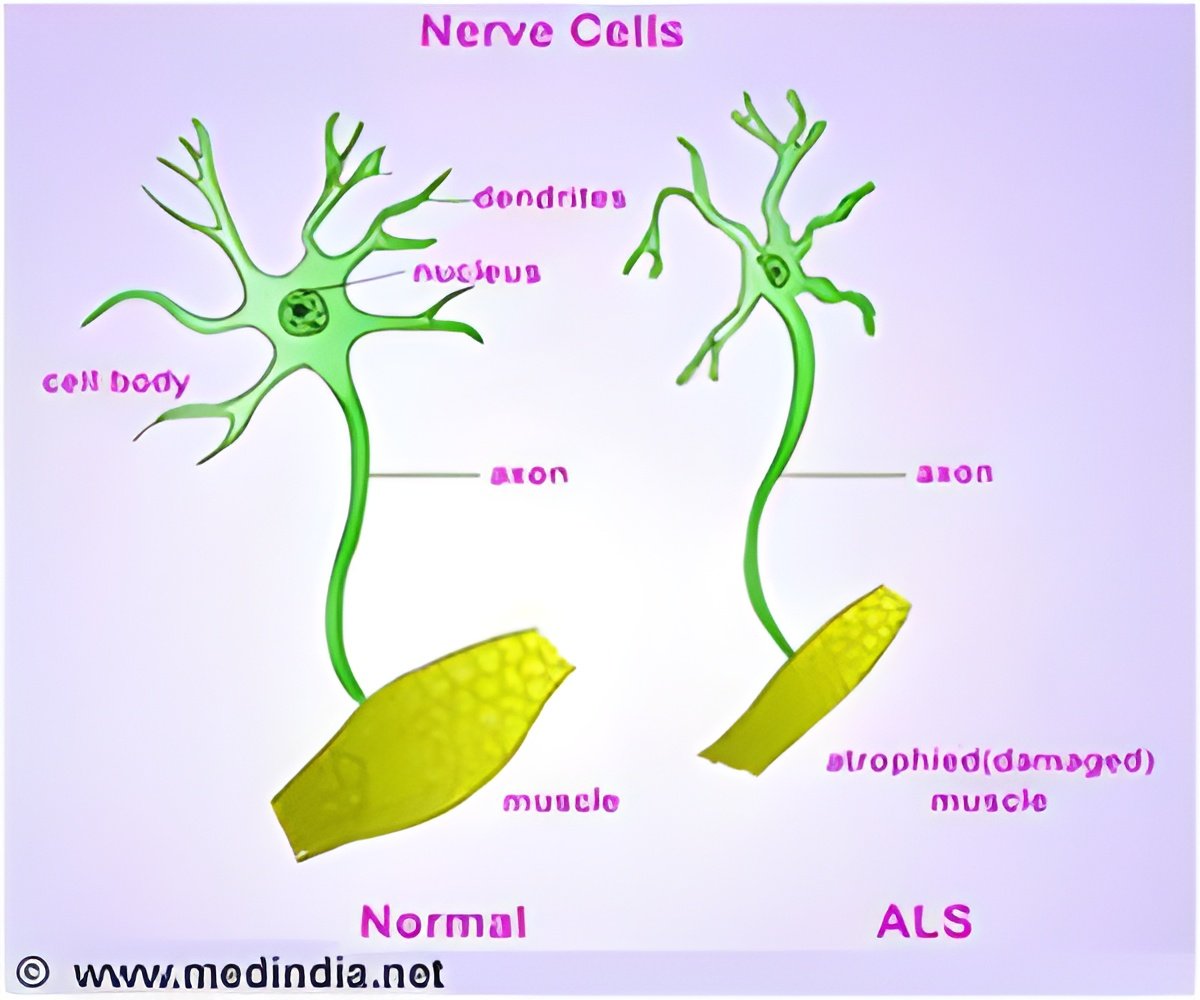Scientists have revealed that new treatments for the incurable nerve disease known as Lou Gehrig's disease could be developed via a long-used anti-cancer drug.

Lucia Banci, Ivano Bertini and colleagues explain that ALS causes a progressive loss of muscle control as the nerves that control body movements wither and die. Patients become weak and have difficulty swallowing and breathing, and most die within three to five years of diagnosis. Although some ALS cases are hereditary and run in families, about 90 percent are "sporadic," with the cause unknown. Some research links sporadic ALS to clumping of an antioxidant enzyme called hSOD1. The authors explored whether cisplatin, a chemotherapy drug used since the 1960s that is known to interact with some of the enzyme's amino acids, has any effect on hSOD1 clusters.
The scientists found that in laboratory tests, the anti-cancer drug cisplatin bound readily to the enzyme, preventing hSOD1 from aggregating and dissolving existing bunches. Cisplatin targets sites that can form bonds between hSOD1 after the enzyme loses the atom of copper it normally carries. The scientists note that cisplatin does not prevent the enzyme from performing its normal functions. "From this work it appears that cisplatin is a promising lead compound for the rational design of ALS treatments," the authors say.
Source-Eurekalert










